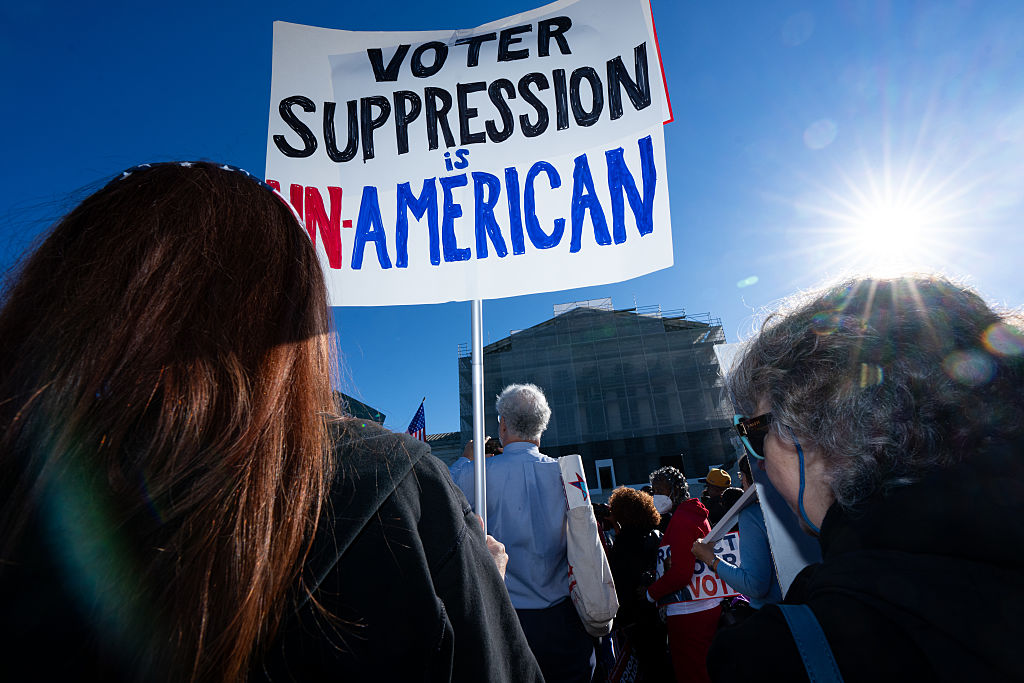Voting Rights Could Take a Major L — Here’s Why That Matters

A new Supreme Court case, Louisiana v. Callais, could dramatically shift political power in Congress — especially in favor of Republicans.
At the heart of the case is Section 2 of the Voting Rights Act of 1965, a key rule that bans racial discrimination in voting. For decades, Section 2 has required many states — especially in the South — to draw “majority-minority” districts, where Black or Latino voters make up most of the population. These districts have helped ensure that communities of color can elect candidates who represent their interests — and they often vote Democratic.
If the Supreme Court strikes down Section 2, Republican-led states would no longer be required to maintain those districts. That would open the door for them to redraw congressional maps in ways that reduce the number of seats held by Democrats. Experts estimate Republicans could eliminate up to a dozen Democratic districts across the South, including in states like Alabama, Louisiana, Mississippi, and South Carolina.
The case is especially significant for Texas, Louisiana’s neighbor, which recently passed its own new congressional maps that already favor Republicans. If Section 2 is overturned, Texas could go even further — reshaping districts in ways that strengthen GOP control and weaken the voting power of diverse urban areas like Dallas, Houston, and Austin.
That shift could make it much harder for Democrats to win back control of the House — even if they win the nationwide popular vote. Analysts say Democrats might have to win by five or six percentage points nationally just to break even on House seats.
In short: this case isn’t just about Louisiana. It’s about the South, voting rights, and the rules that decide who gets power in Washington.
Watch what’s happening live from the Supreme Court below.
The Kickback w/ Jazzi Black and DJ Wire Weekdays 9A-3P, Saturdays 12P-3 P | Follow us on IG @kickbackoffair , Follow Jazzi Black on TikTok @jazziblack
Voting Rights Could Take a Major L — Here’s Why That Matters was originally published on thebeatdfw.com







